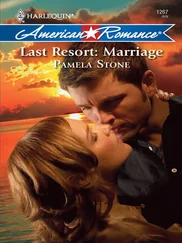“It was a bad atmosphere for me, L.A. Tiff and her friends were always talking about money. Sometimes they pretended to be concerned about art, or politics, or the environment, but what really interested them was the bottom line, you know?”
“Mm,” Jenny uttered. One of the good things about Gerry was that he cared seriously about the environment. A few years ago he had published a book on nature and the contemporary men’s movement called Men of Oak, which contained several quotations from Wilkie’s works. Wilkie, in an exchange of civilities, had quoted from one of Gerry’s poems in an article in the Atlantic.
“Fucking creeps, most of them, excuse me,” Gerry muttered almost to himself, sitting back.
“That’s all right,” Jenny said pleasantly; but what she felt was annoyance and disappointment. Gerry had stopped flirting, if he ever had been flirting. But that was what she had intended, so why should it annoy her?
“Not all, though,” he continued. “I met this really remarkable guy from Oregon last month. He’s designing a wind-power system that’s going to save God knows how much gas and coal. He was impressive. I get discouraged sometimes about the way the world is going, you know? Then I talk to someone like him, and I think we’ve got a chance. But Tiff and her friends—All they wanted to find out was, would his windmills make a profit, and if so how could they get in on the financial action, you know?”
“Yes; I’ve met people like that,” Jenny said.
“It’s good being out of that atmosphere. Being with someone like Wilkie. I’ve always admired him, even before we met. I was so damned pleased when he wanted to quote those lines from “Voices of the Lost Woods” in his article. You know, people still come up to me, people who never read poetry, and say ...
He wasn’t flirting, Jenny told herself. He was just being agreeable to me because I’m married to Wilkie, the way everyone is. Everyone except Lee.
“What he has is, he has integrity. He’s never compromised, never done anything he could be ashamed of, or anybody could kid him about.”
No, I suppose not, Jenny thought, tuning out again as Gerry’s praise of Wilkie segued into regrets about the way the world was going, and his own guilty involvement in this deterioration.
“... this ad for laptop computers; probably you saw it, it was in a lot of magazines last summer,” Gerry was saying when she tuned back. “Some woman Tiff knew fixed it up for me. I didn’t like the idea much, but I needed to pay Gaia’s college tuition—that’s my youngest daughter, she’s at Stanford—and I agreed. So they put me in an ad with this football player. He was pushing seven feet and must have weighed well over two-fifty. The way we were photographed, he looked like a big healthy, happy jock, and I looked like some kind of loony aesthete. I got a check for five thousand and a new laptop, but I lost a lot of credibility. Tiff couldn’t see it. She just kept saying, ‘All publicity is good publicity.’”
“Mm.” Jenny had often heard this dubious phrase; it was one of Wilkie’s new agent’s favorites.
“You ask me, that’s like saying, all chocolates are good chocolates. The truth is, some might poison you.” He gave a short unhappy laugh and helped himself to another, presumably nontoxic, piece of candy. “I bet Wilkie never did anything like that ad.”
“Well, he—No, not like that,” Jenny agreed, deciding not to mention the charity appeal in which a foolish unposed photograph of Wilkie had appeared. In this photograph Wilkie’s mouth was open, showing his partial plate, and he was being presented, evidently much against his will, with a giant stuffed toy panda representing World Wildlife.
“But you know, people will forget that ad,” she said. “I mean, if they ever saw it in the first place. I didn’t, for instance.” Automatically, she assumed the soothing, almost crooning tone she had perfected over the years for responding to any public insult or embarrassment to Wilkie. “Most people never remember ads.”
“I hope so.” Gerry stared down into the pool, then lifted his head. “You know that lost-looking white heron I was telling you about Friday, that I saw on the street?” he said. “I put him into a poem. I’d like you to look at it.”
“That would be nice,” Jenny said, aware that to refuse to look at a writer’s work is always a deadly insult.
“Great.” Gerry leaned toward her, put his warm hand on her cooler arm, and looked warmly into her eyes. “It’s up in my study, if you don’t mind climbing stairs—It’s getting kind of hot here.”
Yes, Jenny realized, it was hot—especially under Gerry’s hand. Maybe she had been right after all.
“I’ll give you a drink,” he added, removing his hand but not his gaze.
“Oh—Thanks, but I don’t need—” He’s flirting again, she told herself; maybe more than flirting. Well, at least I’m not going up there half-naked. “I’ll tell you what,” she said. “I’ll get some dry clothes on and be with you in ten minutes.”
“Great,” Gerry repeated. “Hey, don’t forget your chocolates. They’ll melt out here.”
Carrying the oversized red heart-shaped box of candy, Jenny crossed the sitting room, glancing out the front window as she passed to see if Wilkie was on his way back from the beach.
There was someone by the gate, but it was only Jacko’s cousin Barbie, a large, silly, blonde young woman, who had turned out to be one of Wilkie’s fans, and “totally thrilled” to find herself staying in the same compound. Twice already she had informed Jenny that it must be wonderful to be married to a man like that. Yes, it used to be, Jenny had thought. Today Barbie, who was presumably waiting for her cousin Jacko, was wearing an especially silly getup: a pink ruffled off-the-shoulder blouse and short white shorts, like a female country-western singer.
Barbie’s aunt, however, was a quiet, pleasant woman, Jenny thought as she climbed the stairs. She’d had an interesting conversation with her yesterday about plants. According to Dorrie Jackson, the luxuriant elephant-eared climbing vine by the gate was a common philodendron. In this tropical climate, when it found a suitable tree, it totally metamorphosed. Registering Jenny’s polite but unconvinced expression, Mrs. Jackson had proved her point by showing her, on the ground by the tree, a shoot of the same plant in its smaller, northern form.
On the other hand, Jenny thought as she peeled off her bathing suit, Barbie’s mother, Myra Mumpson, was a very annoying person. Yesterday, for instance, she had more or less forced her way into the house, saying that she wanted to “look it over” for Jacko, the future owner of the compound. “I’m a Realtor, you know,” she had explained, pushing past Jenny into the hall. She then made a rapid tour of the place, letting fall at intervals phrases that might have come from a real estate brochure, phrases like “contemporary island kitchen” and “en suite luxury master bath.”
Jenny had tried to keep Mrs. Mumpson out of Wilkie’s study, but without success. “I just want a tiny peek, it won’t take a minute,” she had cried, opening the door. Wilkie, who was sitting in the rocker gazing out of the window, looked up, his expression of surprise quickly turning to rancor. “Who the hell was that awful woman?” he had asked Jenny angrily later, as she had known instantly that he would.
Opening the door of what Mrs. Mumpson had referred to as an “elegant built-in wardrobe,” Jenny selected the clothes that seemed appropriate for a drink with Gerry Grass in his present state of mind: canvas shoes, tailored slacks, and a man’s shirt in a dense weave that would neither suggest erotic advances, in case that was what he had in mind, nor make them easy.
Читать дальше












